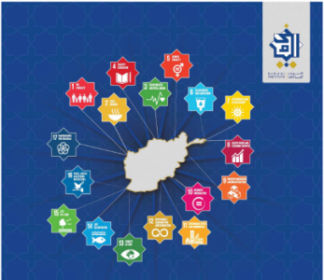This paper takes stock of the progress towards the SDGs in Afghanistan and discusses the policy options that could help achieve the SDGs by 2030. It also assesses the role of regional cooperation instruments and the Covid-19 pandemic in accelerating or derailing the SDGs. We find that Afghanistan has made significant procedural progress in translating SDGs agenda into policy programs by nationalizing the SDG targets and indicators, carrying out policy alignment analysis, and taking initial steps in data assessment by identifying baselines for each indicator and the gaps. To maintain the procedural progress, we propose frequent data evaluations and annual stock-taking exercises to better monitor progress towards the ASDGs, as the SDG costing and financing strategy is currently being developed. On the political buy-in for ASDG agenda, we propose reinstalling a high-level institutional arrangement to ensure ASDG receives the technical, political and financial support required to mainstream the agenda. In addition, closing the gap in policy-budget disconnect will enable targeted government spending that is aligned with SDG targets and objectives. We review and assess the essential role that trade, technology, information sharing, FDI and institutional cooperation play in achieving those SDGs that require regional cooperation.



